Words that have rupt in them – Prepare to embark on a linguistic journey as we delve into the fascinating world of words that have “rupt” in them. From their etymological origins to their nuanced meanings and captivating literary applications, we’ll uncover the rich tapestry woven by these words.
Join us as we trace their historical evolution, analyze their semantic domains, and explore the morphological patterns that shape their structure. We’ll also examine their grammatical functions and the stylistic effects they create in literature.
Etymological Origins of Words Containing “Rupt”: Words That Have Rupt In Them
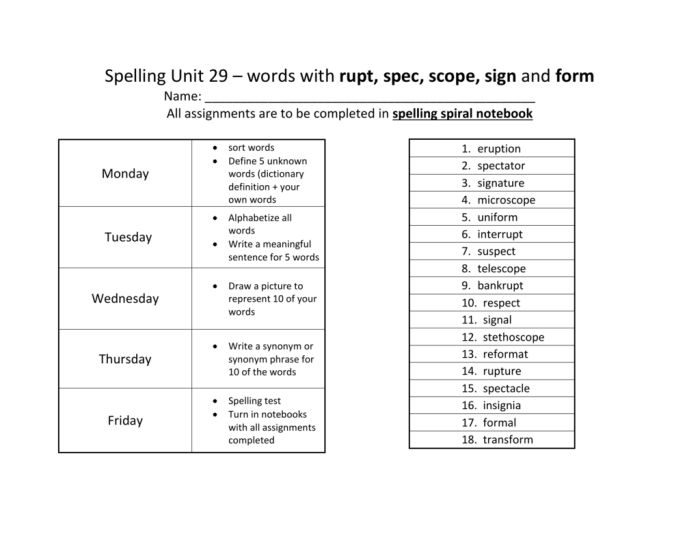
Words containing “rupt” often trace their origins to Latin and Greek roots, carrying meanings related to breaking or bursting. The evolution of these words over time has shaped their semantic nuances and expanded their applications.
The Latin root “rumpere” signifies “to break” or “to burst,” while the Greek root “rhēgnunai” conveys the idea of “to break” or “to tear.” These roots have given rise to a range of English words that share a common theme of disruption or separation.
Latin Root “Rumpere”, Words that have rupt in them
- rupture: a break or tear, often in a physical or figurative sense
- corrupt: to make impure or dishonest; to spoil or damage
- interrupt: to break into or disrupt the continuity of something
Semantic Analysis of “Rupt” in Various Contexts
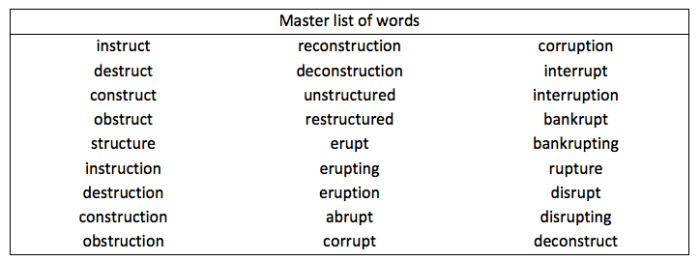
The morpheme “rupt” often denotes a break or disruption. By examining words that incorporate this element, we can uncover its nuanced meanings and semantic range.
Medical Context
In medical contexts, “rupt” typically refers to a sudden break or tear in tissue or an organ.
- Rupture: A break in the continuity of a tissue or organ, such as a muscle or blood vessel.
- Hernia: A protrusion of an organ or tissue through a weak spot in the surrounding muscle or fascia.
Financial Context
In finance, “rupt” signifies a sudden and severe decline in value or liquidity.
Some words, like “abrupt” and “interrupt”, have “rupt” in them. This “rupt” element gives these words a sense of suddenness or disruption. In a similar vein, the plot like gravy thickens , thickening and becoming more complex as new elements are introduced, often leading to unexpected turns and surprises.
Like words with “rupt”, these plot developments can disrupt our expectations and keep us on the edge of our seats.
- Bankruptcy: A legal declaration of inability to repay debts, resulting in the liquidation of assets.
- Default: Failure to fulfill a financial obligation, such as a loan payment.
Geological Context
In geology, “rupt” describes a break in the Earth’s crust or a sudden change in its structure.
- Fault: A fracture in the Earth’s crust where movement has occurred.
- Earthquake: A sudden and violent shaking of the Earth’s crust caused by the release of energy.
Morphological Structure of Words with “Rupt”
The morphological structure of words containing “rupt” reveals a pattern of prefixes, suffixes, and root words that contribute to their formation and meaning.
Prefixes
Prefixes attached to “rupt” include:
- cor-(with, together): corrupt, corroborate
- dis-(apart, away): disrupt, disapprove
- e-(out, away): erupt, evict
- in-(in, into): interrupt, intrude
- ob-(against, towards): obstruct, obstinate
- per-(through, thoroughly): peremptory, perpetuate
Suffixes
Suffixes added to “rupt” include:
- -ion(action or process): corruption, disruption
- -ive(tending to): disruptive, corruptive
- -ment(result or state): corpulent, erudite
- -ture(result or condition): fracture, rupture
Morphological Patterns
The combination of prefixes and suffixes with “rupt” creates a range of words with distinct meanings and morphological patterns. For example:
- corrupt(verb): to make morally corrupt
- corruption(noun): the state of being morally corrupt
- disrupt(verb): to break apart or interrupt
- disruptive(adjective): tending to disrupt or break apart
- erupt(verb): to burst forth or explode
- eruption(noun): the act or process of erupting
Grammatical Usage of Words Containing “Rupt”
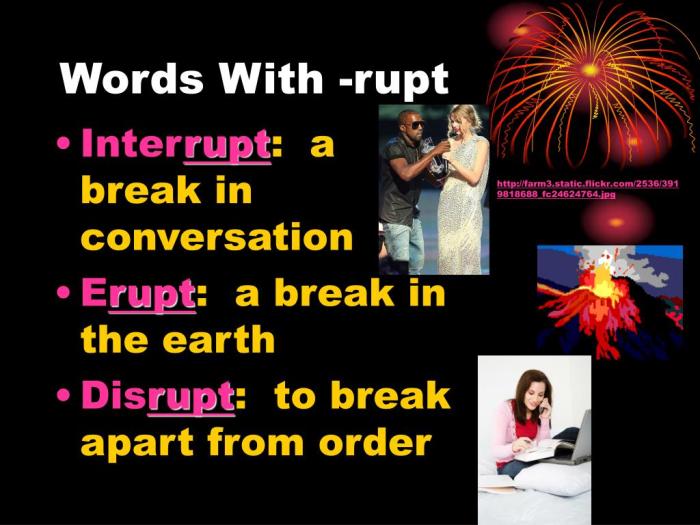
Words with “rupt” can take on various grammatical functions, including nouns, verbs, and adjectives. Here’s an analysis of their usage and examples:
Nouns
- Bankruptcy:The legal state of being unable to pay debts.
- Disruption:An interruption or disturbance.
- Rupture:A break or tear, especially in a relationship.
Verbs
- Corrupt:To make dishonest or morally depraved.
- Disrupt:To interrupt or disturb.
- Interrupt:To break in or stop the progress of something.
- Rupture:To break or tear apart.
Adjectives
- Bankrupt:Unable to pay debts.
- Disruptive:Causing interruption or disturbance.
- Interruptive:Tending to interrupt.
- Ruptured:Broken or torn apart.
Stylistic and Literary Applications of Words with “Rupt”
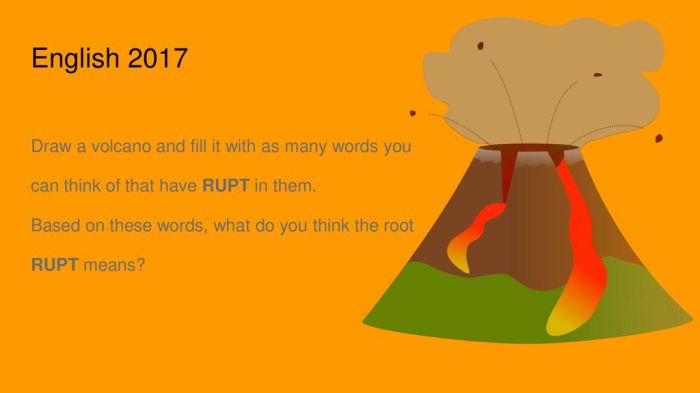
Words containing “rupt” often carry connotations of breaking, disruption, or disruption. In literature, these words can be used to create powerful stylistic effects and enhance the impact of literary devices and techniques.
The abrupt and disruptive nature of words with “rupt” can be used to create a sense of tension, suspense, or unease. They can also be used to emphasize a moment of crisis or conflict, or to convey a sense of urgency or desperation.
Literary Devices and Techniques
Writers employ various literary devices and techniques to enhance the impact of words with “rupt.” These include:
- Alliteration:Using words with “rupt” in close proximity to create a sense of rhythm and emphasis.
- Assonance:Using words with similar vowel sounds to create a sense of harmony or dissonance.
- Metaphor:Using words with “rupt” to represent a broader concept or idea, such as the breaking of a relationship or the disruption of society.
- Symbolism:Using words with “rupt” to represent a specific object or idea, such as the breaking of a glass to symbolize the shattering of a dream.
Examples in Literature
Numerous literary works effectively utilize words with “rupt” to create powerful stylistic effects. For instance, in Shakespeare’s “Macbeth,” the word “rupture” is used to describe the breaking of a bond between Macbeth and his wife:
“It is a banquet to me. Let’s make us merry, / As once we were, my queen, before this rupture / Of our great state and happiness.”
In Emily Dickinson’s poem “Because I could not stop for Death,” the word “rupture” is used to describe the moment of death:
“Because I could not stop for Death, / He kindly stopped for me; / The carriage held but just ourselves / And Immortality. / We slowly drove, he knew no haste, / And I had put away / My labor, and my leisure too, / For his civility— / We passed the School, where Children strove / At Recess—in the Ring— / We passed the Fields of Gazing Grain— / We passed the Setting Sun— / Or rather—He passed Us— / The Dews drew quivering and chill— / For only Gossamer, my Gown— / My Tippet—only Tulle— / We paused before a House that seemed / A Swelling of the Ground— / The Roof was scarcely visible— / The Cornice—in the Ground— / Since then—’tis Centuries—and yet / Feels shorter than the Day / I first surmised the Horses’ Heads / Were toward Eternity—”
Cultural and Historical Significance of Words with “Rupt”
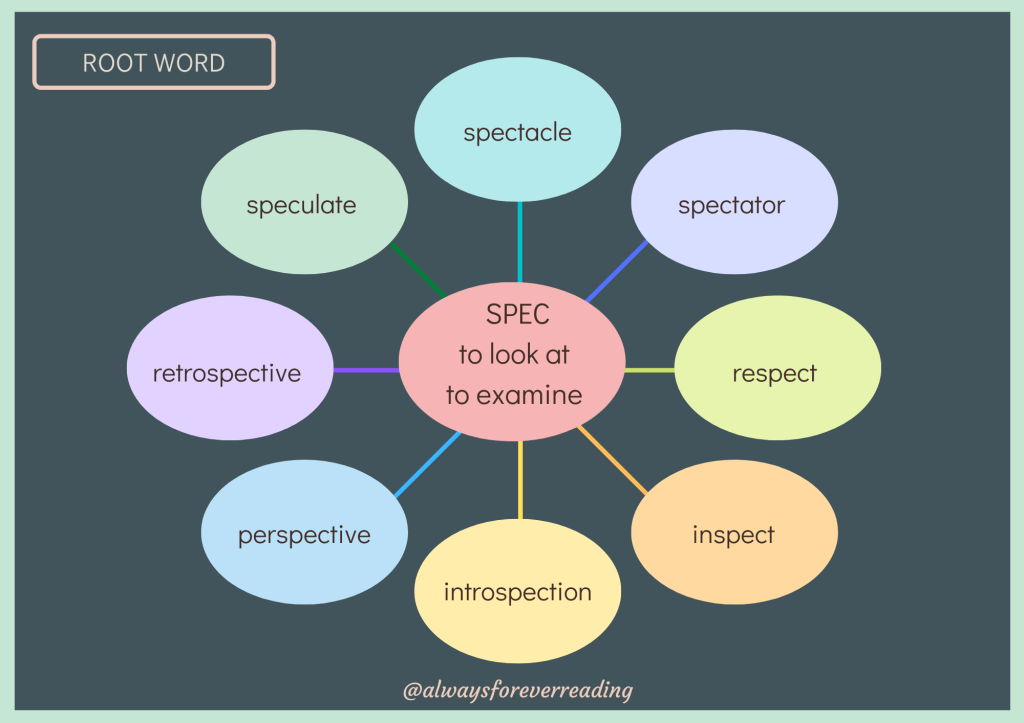
Words with “rupt” have played a significant role in shaping historical events and cultural movements. Their meanings have been influenced by social, political, and economic factors, reflecting the complex interplay between language and society.
Historical Events and Cultural Movements
- French Revolution:The word “rupture” became synonymous with the radical social and political changes that took place during the French Revolution. It signified the breaking away from traditional norms and the establishment of a new order.
- Industrial Revolution:The term “disruption” gained prominence during the Industrial Revolution, capturing the transformative effects of technological advancements and the disruption of established industries.
- Civil Rights Movement:The word “rupture” was used to describe the challenges and conflicts faced by the Civil Rights Movement in the United States. It symbolized the struggle for equality and the breaking down of racial barriers.
FAQ
What is the origin of the word “rupture”?
The word “rupture” traces its roots to the Latin verb “rumpere,” meaning “to break” or “to burst.”
What are some common prefixes and suffixes associated with “rupt”?
Common prefixes include “dis-” (meaning “apart”), “inter-” (meaning “between”), and “sub-” (meaning “under”). Common suffixes include “-ion” (meaning “act or process”) and “-ure” (meaning “result”).
Can you provide an example of a sentence using a word that has “rupt” in it?
The earthquake caused a significant rupture in the Earth’s crust.